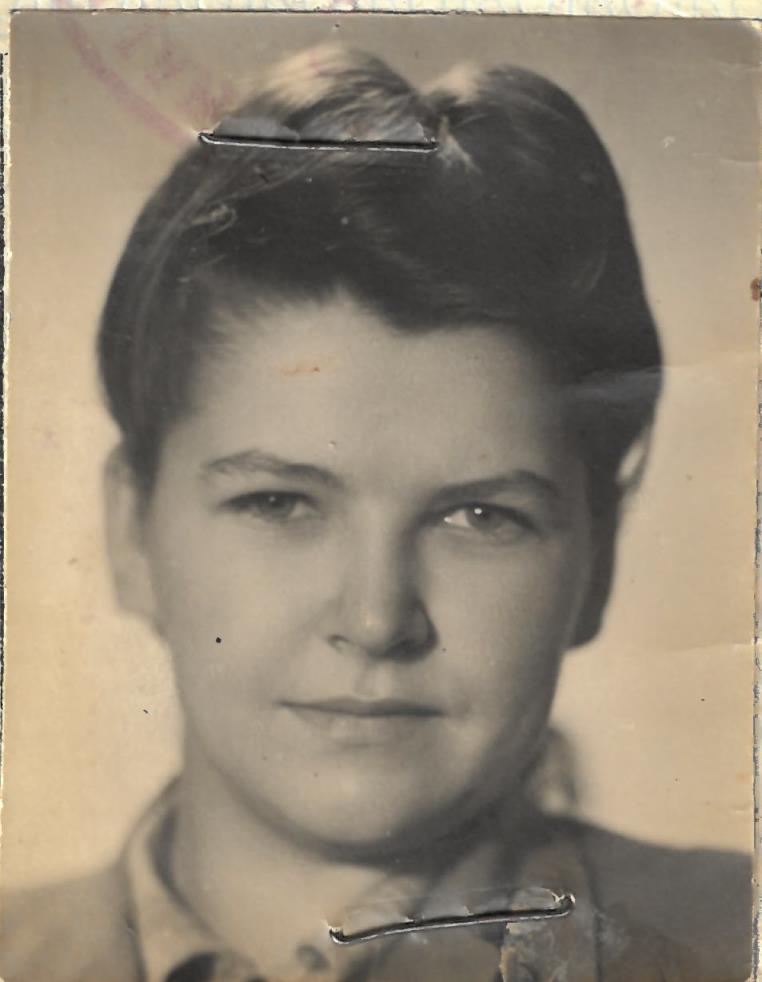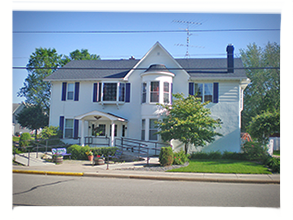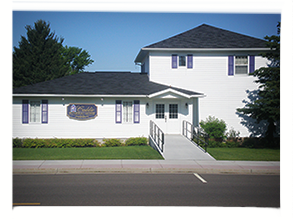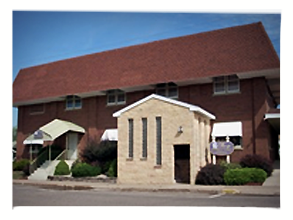 Obituaries
Obituaries
In Memory Of
 |
Harriet Anna KulinskiMay 17, 1927 - March 8, 2022
|
|
Visitation: |
Services: |
Full Obituary Harriet Kulinski (nee: Jadwiga Anna Bak)
Mama left to be with Jesus 8:05 p.m. on March 8, 2022.
Harriet was born May 17, 1927 in Lwow/Lviv/Lemberg, Poland, which is now part of western Ukraine, to Julia Seibel and Wladyslaw Bak, the son of a father of a noble birthright.
She was a happy child spending time at the manors and palaces of the in-laws on special occasions and being ferried to these places and events by her Aunt Genowefa.
There was a near tragic incident early in her life at Ivanie Puste, then part of Poland, where her father was working on a railroad project as a structural engineer. It was a Sunday and a grand party was being held at the grand palatial estate. Harriet wandered off the courtyard towards the river Zbruch, lost her balance, and fell in. One of her aunts noticed her missing and was not far behind. She saw Harriet fall in and retrieved her.
Harriet remembers seeing her guardian angel by her side and the brightness from which she emerged when resuscitated. She often recalled the long walks with her grandfather from the apartment complex on the outskirts of the city to the ruins of the high castle above Lwow, which was once the residence of Prince Danilov.
The name of the city Lwow is derived from the Polish word Lew meaning Lion (City of the Lion Prince/the Lionhearted). Her grandfather, Jan Bak, would tell her the proud ancient history of the tribes of Dan after whom the Dniepr and Danube rivers were named and of the ancient castle inhabitants’ origins that began with some settlements from members of the lost tribes of Israel who departed from Assyria. How she loved the fragrant, clustered blooms of the Acacia trees that resembled bunches of grapes in early spring and the cool shade they provided throughout the city and the beautiful parks.
She was a good student and had a gift for art, doing many drawings. She especially loved St. Ann's Church where she was baptized.
Her carefree ways came to an abrupt end while still a 12-year-old child. On September 1, 1939 Hitler invaded Poland. Then, on September 17, communist Russia's Stalin invaded from the east - facilitating the Riebentrop/Molotov alliance.
Her father was in the reserves. He was a decorated veteran of the defense of the city of Lwow in WWI in the children's brigade and the Polish Soviet war of 1918/1920. He went into the underground effort when Poland was dismembered at the end of 1939 by Germany and Russia. Harriet never saw her father again!
They lived in one of the apartment complexes her maternal grandparents owned near the military airport and main railway terminal until the Russians took over the city. They were fortunate to have a place to flee to on the outskirts of the city near the village of Lesienice where the paternal grandparents had a small estate. All the while, the Russians were rounding up people they considered enemies of the state on bogus charges. Harriet witnessed the carnage of murder and deportations to Siberia of professors, priests, former military personnel, judges, police officers, managers, administrators, teachers, and anyone with ties to authority and nobility status.
Their time at the estate with the grandparents was precarious at best. Russian intelligence agents came at all hours unannounced and interrogated them thinking someone would slip up and give away the whereabouts of her father. That is why her father, Wladyslaw/Walter, never told anyone when he went into covert activity. On June 22 1941, Hitler tired of the agreement with Stalin the butcher and invaded Russia when he launched Operation Barbarossa. After pushing back the Russians, who were at that time in control of Lviv, the Germans started rounding up people and sending them to various camps. Whereas Stalin had been sending Polish citizens east to the Gulags and Siberia to work and perish in the cold Hitler was loading cattle cars sending people west for slave labor and extermination of the undesirables. Harriet was captured along with the rest of her extended maternal and paternal family, who made the mistake of trying to move back into their homes after the Russians retreated. She endured the terror of boarding the trains and the terror once again of the killings - this time by the Germans!
Harriet remembers de-boarding the train somewhere past the town of Przemysl - with everyone being herded like cattle in freezing weather and being kept with others in a fenced enclosure, then being herded back to a train platform and forced to re-board a train headed west. This train then stopped somewhere in southern Silesia where the older girls and Harriet were forcibly removed. The rest of the train load was taken to Leipzig where they were forced to work slave labor at some munitions factories, etc.
The girls were taken to an undisclosed location where they were evaluated and separated. Harriet and one other older girl were taken to an estate (large farmstead). The woman who ran this farm was a Nazi sympathizer. The woman's husband was not; he was some sort of forestry official - a warden or forester/a Jaegermeister. They had a daughter whose husband was forced to join the military and was fighting on the front lines. The daughter had a young child of about 3 years old. This is where Harriet remained for some time, learned some German, and had some tasks assigned to her. One of these tasks was to watch the child and do household duties. The little girl would follow Harriet around and they became inseparable. The young girl’s mother and her father became fond of Harriet, who was now 14 years old. They would sneak her extra food from their table, which Harriet would share with some of the other girls/women there.
She remembers one day when an SS officer came and took some of the older girls. New ones would come to take the place of those that left. One day the woman who ran the estate got into an altercation with an older woman worker and had her sent to Auschwitz.
Some time passed and the woman who ran the estate started to pick on Harriet, probably because of the endearment of her granddaughter, daughter, and husband, who treated Harriet favorably. The woman went into a rage while Harriet was trying to milk a cow by hand because it was not being done fast enough for the woman. Harriet - having had enough of the abuse - stood up and doused the Hitlerite with the milk in the bucket. For that the woman's husband and daughter learned that evening that she was going to send Harriet to Auschwitz to teach her a lesson. The daughter and her father, after giving Harriet explicit instructions, a worker’s rail pass and food for the trip, smuggled her out by a horse-drawn cart to a rural train stop platform. She was told not to speak to anyone if at all possible. They told her to walk to a specific numbered train stop. Harriet recounted that she walked the tracks nearly all night long until she reached that stop where she waited to board a specific train as per her instructions. The daughter and her father had knowledge of where Harriet's mother’s family was taken to and sent her towards Leipzig, Germany.
Harriet sat quietly in the train and handed the rail pass to the conductor, who did not give her a second glance in the wee hours of the morning. Harriet counted the train stops as per instructions and exited before the main city terminal where papers would be checked. She walked a long time, became tired, and took shelter in some trees close to the track. During this time, the war was already not going well for the Germans. She made it to the outskirts of the city and had to walk near some sort of a prison. There were dogs barking. Some guards were calling out to her on the other side of the street as she kept going. She was in an unknown city, an unknown country, walking down an unknown street, not knowing what to do next, and scared to death. Miraculously, one of her aunts was walking down the street towards her on her way back from her shift at the munitions factory. She recognized Harriet and took her to the barracks where her mother was living.
God was watching out for Harriet!
There was no reunion fanfare. She hid out for a while but was noticed and sent to a work detail. Thank goodness the war was going so badly that they needed every available soul to work!
The war was very traumatic for Harriet and the few family members who survived. God erased some of the horrible events from her memory of those years so that she could keep her sanity in an insane world!
Harriet met Fred Kulinski, the son of a nobleman from Janow Lubelski, Poland, in Leipzig, Germany in 1945 where the allies set up a refugee pooling area center to house the influx of all those who were freed from the various detention centers, extermination camps, prisons, and forced work/slave labor facilities. Fred was released from his work detail in Sachsen Anhalt near Gera. Fred stated he saw this beautiful woman (Harriet) standing by the water fountain in the city's central square and urged her to go west with the allied command when they were liquidating the Leipzig facility. Harriet told her mother. Her aunts and uncles, and everyone went westward to the newly formed Goepingen refugee camp where she met Fred a second time.
Harriet married Fred at Goepingen in 1946. They lived in 12 successive refugee camps after the war. Five children were born in Germany. Two children died in Germany. Harriet began working in housekeeping for allied officers’ wives and Fred trained with the U.S. Foreign Service force as an MP. They received their first apartment in 1954 in Augsburg, Germany after Fred began working as a stone mason on the apartment complex building project and they received one of the finished apartments to live in.
They applied for refugee immigration status in 1948 and, after a 10-year wait, received their paperwork to enter the U.S. They left the Hamburg, Germany seaport on the M.S. Berlin ocean liner in May of 1959 on an 11-day voyage. Harriet, Fred, and their three children entered the U.S. at Staten Island, passing the Statue of Liberty. From there they traveled by train from New York to Boston, Detroit, and Chicago on the Nickle Road System. Then, from Chicago, they traveled via the Duluth Soo Line/CW Railroad to Lublin, Wisconsin where they started a new life in the land of the free.
Harriet was very talented and wore many hats! They were not farmers but they started farming. They worked off the farm also. Harriet helped Fred when he was a janitor at the Lublin school. She worked at Lombard Dairy part time also. She made drawings, paintings, children's clothing, original one-of-a-kind Halloween costumes that took first place, and Polish regional and cultural costumes for many large and small dolls. She had an aptitude for building and healing things and would bring many birds, animals, and plants back to health. She had a green thumb. Everything Harriet planted or transplanted grew. She gave her children the building blocks to excel.
Harriet learned to drive in a hay field in 1961. She was proud of her spotless driving record. In 1995 she was stopped by a state trooper. When he asked her why she was going so fast she replied in her Polish accent and explained that she needed to get some medication for some animals before the veterinary store in Thorp closed for the day. The officer let her go but told her to slow down. She never got stopped again and still had her driver license at 94.5 years young.
In the spring of 1999 Harriet's son, who had been searching for family roots for some time, organized a private trip to Germany, Poland, and the Ukraine to search for family survivors. While in Lwow/Lviv they found one of Harriet's school classmates who survived the war and terror. Jula Moskal told her of the horrors after the war ended in Europe and the postwar communist takeover of Poland. Some information was obtained for further research. In the fall of 1999 the Red Cross contacted Harriet after having received inquiries from Poland regarding her brother who was living in Hales Corners, Wisconsin. She learned that she had three half-sisters living in Poland searching for her and her brother. After numerous correspondences, Harriet learned that her father had survived the war and returned to the estate of his aged parents. He managed to move them westward in Soviet-occupied Poland where they eventually resettled in Wroclaw. Not being able to find his wife and children - he thought that they had perished during the war - he remarried and had three daughters. He passed away in 1965. Harriet lived to see her half-sisters in Klodzko and a cousin in Wroclaw, Poland. She also met the survivors of her husband Fred's family near Lublin, Poland. It added some closure to her torments and it was a great joy for her to find some family members still alive.
Harriet's life experiences could fill a book!
She was able to speak, read, and write in five languages. She became a citizen of the greatest country on earth - the USA! Harriet fervently believed in almighty God who watched over her until it was time for her to come home.
Harriet (Jadwiga Anna Bak) Kulinski is survived by her children Marie (Jim) Lind of Fairchild, Wisconsin; Chris (Jill Daniels) of Withee, Wisconsin; Julian (Vicki Armes) of Withee, Wisconsin; and Fabian of Lublin, Wisconsin; 8 grandchildren and 5 great grandchildren. She is further survived by her brother John Bak of Marion, Wisconsin; and cousins, Gizelle Italiano of Toronto, Canada; Leslawa Porebska ( Amade vel Bagamery) and husband Wieslaw; Andrzej Pandura (Amade vel Bagamery) and wife Krystyna of Wroclaw Poland; and three half-sisters Maria Knap of Mielec Poland; Zofia Krawczyk and Emil; and Teresa Niedziela and Czeslaw of Klodzko, Poland. She was preceded in death by her father, Wladyslaw Bak, in 1965; mother, Julia Seibel Bak Klosowski, in 1995; husband, Fred, in 2013; son, Marian, in 1945; daughter, Jolanta, in 1947; son, Albert, in 1976; and sister-in -law Josephine Bak in 2022.
|
|



